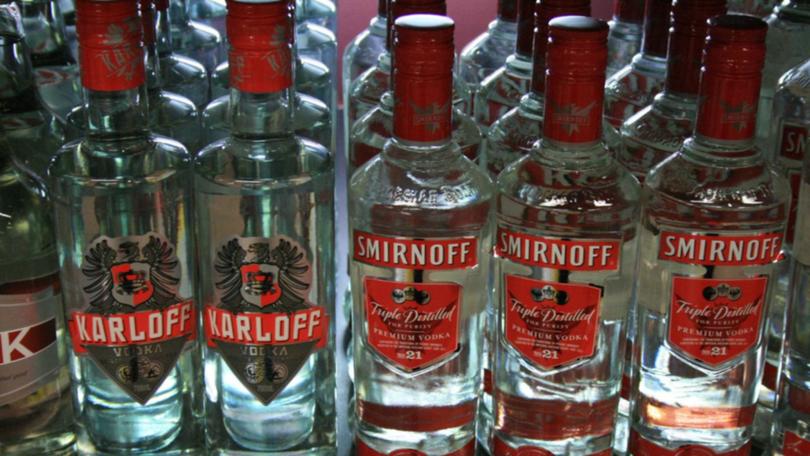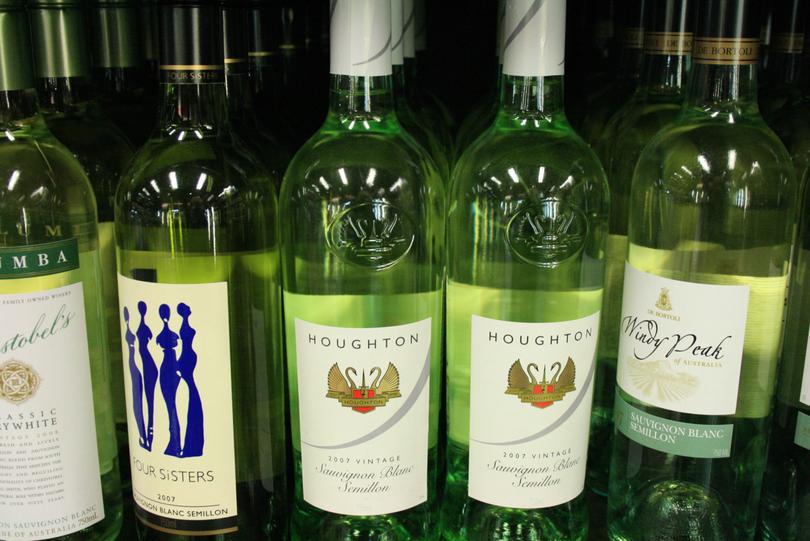Coroner recommends changes to food and alcohol delivery services in Victoria after woman dies from alcohol poisoning

The tragic death of a Melbourne woman from alcohol poisoning has highlighted the need to change how easily consumers can buy alcohol from delivery services, a coroner says.
Kathleen Arnold, 30, was found unconscious in her bed by her mother on September 16, 2023.
Paramedics attended the pair’s Heidelberg home but Arnold was declared dead soon after.
Sign up to The Nightly's newsletters.
Get the first look at the digital newspaper, curated daily stories and breaking headlines delivered to your inbox.
By continuing you agree to our Terms and Privacy Policy.A post-mortem examination revealed her blood alcohol level was 0.54, with her cause of death recorded as acute ethanol toxicity on a background of chronic alcoholism.
According to a coroner’s report released on Tuesday, Arnold had been using food delivery services to order excessive amounts of alcohol to her Heidelberg home.
In the six-month period leading up to her death, it was found Arnold had ordered more than 300 alcoholic products through one particular delivery platform.
These products included 375ml bottles of cider, 700ml bottles of vodka and various bottles of wine.
Coroner Ingrid Giles said Arnold’s death clearly highlighted the need to change the ease with which people were able to order alcohol via delivery services.
“The broader circumstances in which Kathleen died tragically illustrate the consequences of Victorians being able to have alcohol delivered to them swiftly, easily, and late at night,” she said.
Arnold had battled alcohol addiction since she was in Year 12 and had suffered from a host of mental health issues including depression, suicidal ideation and an eating disorder.
She had been hospitalised numerous times and had sought help from a number of clinicians for her struggles.
While there were periods of time when Arnold was able to “stabilise” her drinking habits, “on each occasion she returned to consuming alcohol” Giles said.
Just three weeks before her death, Arnold was found unresponsive by her mother on the floor of their home. At that time, she recorded a blood alcohol level of 0.474.
The day before her death Arnold had walked to the local shops and bought two bottles of wine.
Soon after a passer-by saw Arnold “collapsing on the street” and drove her home where her mother helped her into bed.
Several hours later when her mother had left home, Arnold walked to a nearby store and bought more alcohol.
When Arnold’s mother returned she found her daughter “semi-conscious and responsive” and confiscated half a bottle of vodka.
About 7am the next morning, September 16, Arnold was found unconscious in her bed and declared dead by paramedics soon after.

Giles said Arnold’s mother became aware her daughter was ordering alcohol through food delivery services in 2020, and two years later wrote to her local MP expressing her concerns.
In a statement to the Coroners Court of Victoria, Arnold’s mother wrote: “The delivery services would not check her ID and she was visibly unsteady and unwell. Even when connected to medical equipment they would still deliver unless I intervened.”
A Liquor Control Victoria inspector investigated the conduct of the delivery services and in March 2022 amendments were made to the Liquor Control Reform Act 1998.
“For example, for off-premises requests for alcohol, a licensee must provide written instructions to delivery drivers, including regarding liquor not being left unattended and identification documents being checked to verify age,” Giles said.
Following Arnold’s death in October 2023, a Liquor Control Victoria inspector found Arnold had made orders from one food delivery service almost every day.
It was then revealed she had ordered 319 alcoholic products over 182 days leading up to her death.
Giles said more than 150 deaths involving acute toxic effects of alcohol are reported to the Coroners Court of Victoria each year.
She said Arnold’s tragic death should highlight the need to reform in the delivery services industry.
“I believe this is an area where relatively straightforward reform has the potential to significantly reduce the burden of harms associated with alcohol accessed via delivery provider platforms,” Giles said.
She recommended the Liquor Control Reform Act 1998 be changed to prohibit home delivery of alcohol between 10pm and 10am as well as require a minimum two-hour delay between order and dispatch of alcohol for home delivery.
Giles also said the Victorian government should develop a new action plan or program to address harm caused by alcohol in the state.
“Kathleen Dawn Arnold was able to and did access alcohol with great frequency via food and alcohol delivery platforms, including in the early hours of the morning, which I consider to have exacerbated her chronic alcohol consumption at points in time when she was likely already intoxicated and compromised in terms of impulse control,” Giles said.
“I convey my sincere condolences to Kathleen’s family for their loss and recognise the ongoing and tireless efforts of her loved ones, and her clinical team, to care for and support her.”
Originally published on 7NEWS
